| Grantee | Global Fishing Watch ↗ |
| Grant Amount | 900,000 |
| Duration | Three Years |
The Joint Analytical Cell (JAC) will be established by TMT, GFW and IMCSN as a collaborative effort designed to harness the complementary information gathering and analytical capabilities, fisheries intelligence tools and databases, and international partnerships of the three founding organizations. The JAC represents the first step in what can develop into a larger coalition of like-minded organizations and a ‘home’ for technology, data and operational support that will be a representative model for how State and non-State actors can collaboratively work together to achieve the shared goals of (a) detecting, deterring, and eliminating Illegal, Unreported, and Unregulated (IUU) fishing activities, (b) increasing overall transparency of fishing activities at sea, (c) building the capacity of developing countries to more effectively and efficiently implement and maintain their own MCS regimes, and (d) levering data and technology to inform and support global fisheries policy and governance processes and strengthening.
The JAC is a cooperation mechanism between the founding partners (and future partners). As such, the JAC will not have its own website or logo. While JAC outputs will be ‘fronted’ by the implementing partners to receivers, the JAC can be clearly identified as the source of analytical and MCS capacity building efforts. This approach will ensure the JAC is credited and underline the importance of collaboration and its benefits, highlighting the mechanism the JAC offers, while avoiding the impression, or confusion, of another new entity joining those already active in this sphere.
Public communications related to JAC work will be overseen and implemented by communications staff at the partner organisations, with one existing communications manager designated as key point of contact to coordinate collective JAC efforts. Public communications will primarily relate to JAC outputs under Focus Area 5 – Global Issues of interest – which will be coordinated with the work of the policy group, where relevant. In addition, there will be communications targeted at JAC country partners, through analytical outputs and MCS capacity building work, designed to highlight the operational advantages of transparency for more effective fisheries MCS and governance.





















